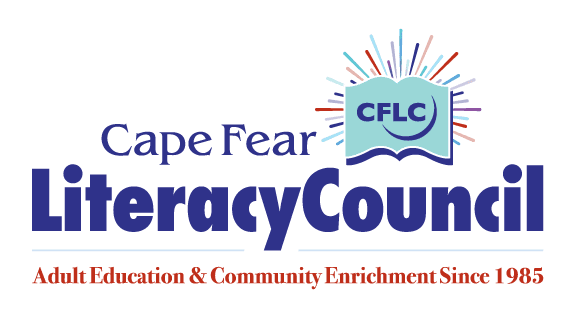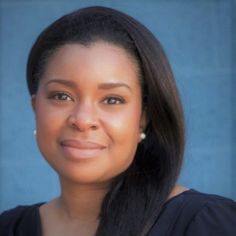New beginnings can be challenging. When I moved to North Carolina in 2013, the azaleas were in bloom, and the area was charming, but I felt unsettled. I knew nothing about Wilmington’s infamy in American history, including the plight of “The Wilmington Ten”—the white woman and nine Black men who were wrongfully jailed as political prisoners for almost ten years before being acquitted in 1980. I was stunned to learn that Dr. Benjamin F. Chavis, Jr.—whom I had known throughout my youth as the executive director of my national church and a friend to my congregation—had been the group’s leader. After visiting historic landmarks like the Gregory Congregational Church and learning more about the full impact of Dr. Chavis’ activism in this community, I felt compelled to do something.
Months later, I still had no idea how to begin. I was involved at my church and in my children’s schools, but I still didn’t feel connected. So naturally, in a town known as “Wilmywood,” I volunteered at a film festival. My assignment was to check passes at the box office of TheatreNOW, a cozy dinner theatre near historical downtown where the independent films were showing. The perk of my job was watching fascinating movies for days on end. The festival’s last day focused on local short films, including one that would change the trajectory of my life and offer me the community connection I had been missing.
A student-directed documentary began with a simple phrase displayed on a dark screen in stark, bright lettering: “43 percent of adults with low literacy skills live in poverty.” The messaging continued: “It is a fact that millions of adults cannot read what you have just read.” There was a palpable shift in emotion throughout the small theatre; many viewers—including myself—were confronting these facts for the first time. A testimonial montage introduced four adult students at the Cape Fear Literacy Council (CFLC). They spoke about the events that had kept them from developing their reading skills, how they endured low literacy, and the inspiring accomplishments they achieved with the help of their tutors.
The eight-minute film stirred something in me and put me on the pathway to learn more about adult literacy and the life-changing work of the CFLC, where I eventually joined the staff. One of the first things I noticed about the campus (two buildings on 17th Street painted a shade lovingly called “Literacy Blue”) was the energy of the people who support the organization’s mission. It is not uncommon to encounter volunteers, tutors, donors, local business owners, and members of staff who have been a part of the CFLC community since its founding in 1985.
Despite this passionate group of supporters, however, one of the biggest ongoing challenges at CFLC is volunteer recruitment. Unfortunately, there is very little awareness about the prevalence and the impact of adult low literacy in our society, and few people understand what literacy councils do. As a result, at any given time, adult basic education programs across the nation must place recently enrolled learners on waiting lists until they can recruit and train new tutors. CFLC is no exception.
At the Cape Fear Literacy Council, our mission is to provide personalized education so adults can transform their lives. We offer 1-on-1 tutoring and small classes for Math, Reading, Writing, English as a Second Language, Computer Skills/Digital Literacy, Test Preparation, and U.S. Citizenship. Our programs reach hundreds of adults each year and truly change lives. Educating the public about adult low literacy–sometimes referred to as a “silent pandemic”–remains a vital part of CFLC’s mission.
Consider the following facts about adult literacy in our country:
- U.S.-born adults make up 66% of adults with low levels of English literacy skills in the United States; non-U.S.-born adults comprise 34% of the population with low literacy skills. [Program for the International Assessment of Adult Competencies (PIAAC)]
- Forty-three million adults in the United States struggle to read; thirty-six million of these adults (1 in 6) read and comprehend at a third-grade level or lower. [U.S. Department of Education]
- Functionally illiterate adults may struggle to understand the meaning of the written word, including nutrition or medicine labels, mobile phone messages, or job applications. [Seeds of Literacy]
- Adults without a high school diploma earn $10,000 less annually than peers with diplomas. [Coalition on Adult Basic Education (COABE)]
- Sixty-five percent of illiterate adults in the United States are women. [ProLiteracy]
- Patients with low health literacy also tend to use the emergency department more often, costing between $106 and $238 billion each year in health care. [George Washington University]
- Children of less-educated parents are more likely to become low-skilled adults. [U.S. Department of Education, Office of Career, Technical, and Adult Education]
These facts may surprise you, just as they surprised me in a dark theater years ago. And maybe they will even stir something in you as well. CFLC has persevered for 36 years because of our committed adult learners, passionate staff, and steadfast volunteers. You can help us to continue to grow and thrive by becoming a volunteer. Our programs rely on volunteer power to make a difference in the lives of adult learners throughout the Cape Fear region. Your support helps us fulfill our mission, allowing adults in our community to achieve their goals by gaining the language and literacy skills they need to succeed.
The Cape Fear Literacy Council is open for new beginnings. Call us at (910) 251-0911 to get started.
See the student documentary that changed my life below.
ABOUT THE GUEST + ORGANIZATION

The Cape Fear Literacy Council (CFLC) envisions a community where all adults possess essential language and literacy skills for success. CFLC is an award-winning nonprofit organization that offers free assessments and personalized instruction in Adult Literacy and English as a Second Language (ESL) through one-on-one tutoring and small classes. Established in 1985, CFLC offers free assessments and personalized instruction in adult literacy and ESL through one-on-one tutoring and small classes.

Alesha Westbrook is the Coordinator of Communications and Development for the Cape Fear Literacy Council, with over fifteen years in nonprofit program management. Since joining in 2016, she has focused on dynamic marketing to showcase CFLC’s students and promote education for school-aged children. Alesha is also active in her community as a Girl Scout Leader and Band Booster.
